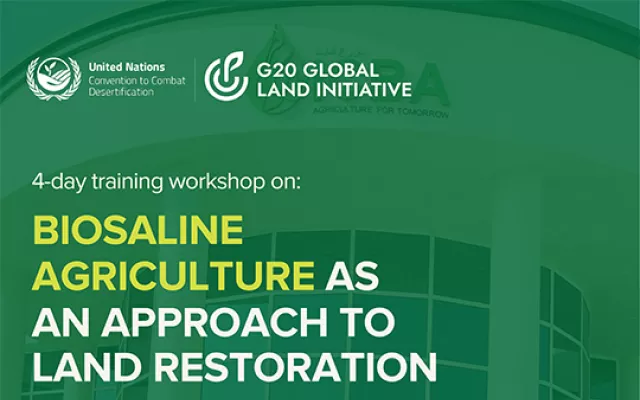Quinoa Open Day
Start date
14 April, 2015
End date
14 April, 2015
Venue
Al-Dhaid Research Station, Sharjah, United Arab Emirates
The future of food security is a crucial global challenge and more so in marginal environments. Quinoa is seen as one of the most promising crops towards future food and nutritional security. This is mainly due to the fact that quinoa seeds are highly nutritious, making them a preferred food source for a healthy and balanced diet. In addition, quinoa leaves are useful as feed, which increases this crop’s potential.
Initial results from the trials on quinoa in the United Arab Emirates were very encouraging. The results confirmed quinoa’s suitability to withstand high salinity in water and soils and to grow under the extremely dry desert conditions of the UAE. Quinoa has proven to have huge potential as an alternative food and feed crop when growing traditional crops becomes uneconomical due to increased groundwater salinity.
Trials in the UAE resulted in the identification of four quinoa genotypes that are suitable for sandy soils such as those in the Arabian Peninsula.
The United Arab Emirates (UAE), represented by the Ministry of Environment and Water and the Abu Dhabi Farmers’ Service Center, along with the International Center for Biosaline Agriculture (ICBA) were pioneers in bringing quinoa to the marginal lands of the UAE and to the wider region that suffer from high salinity and marginalized water and land resources.
Organizers










